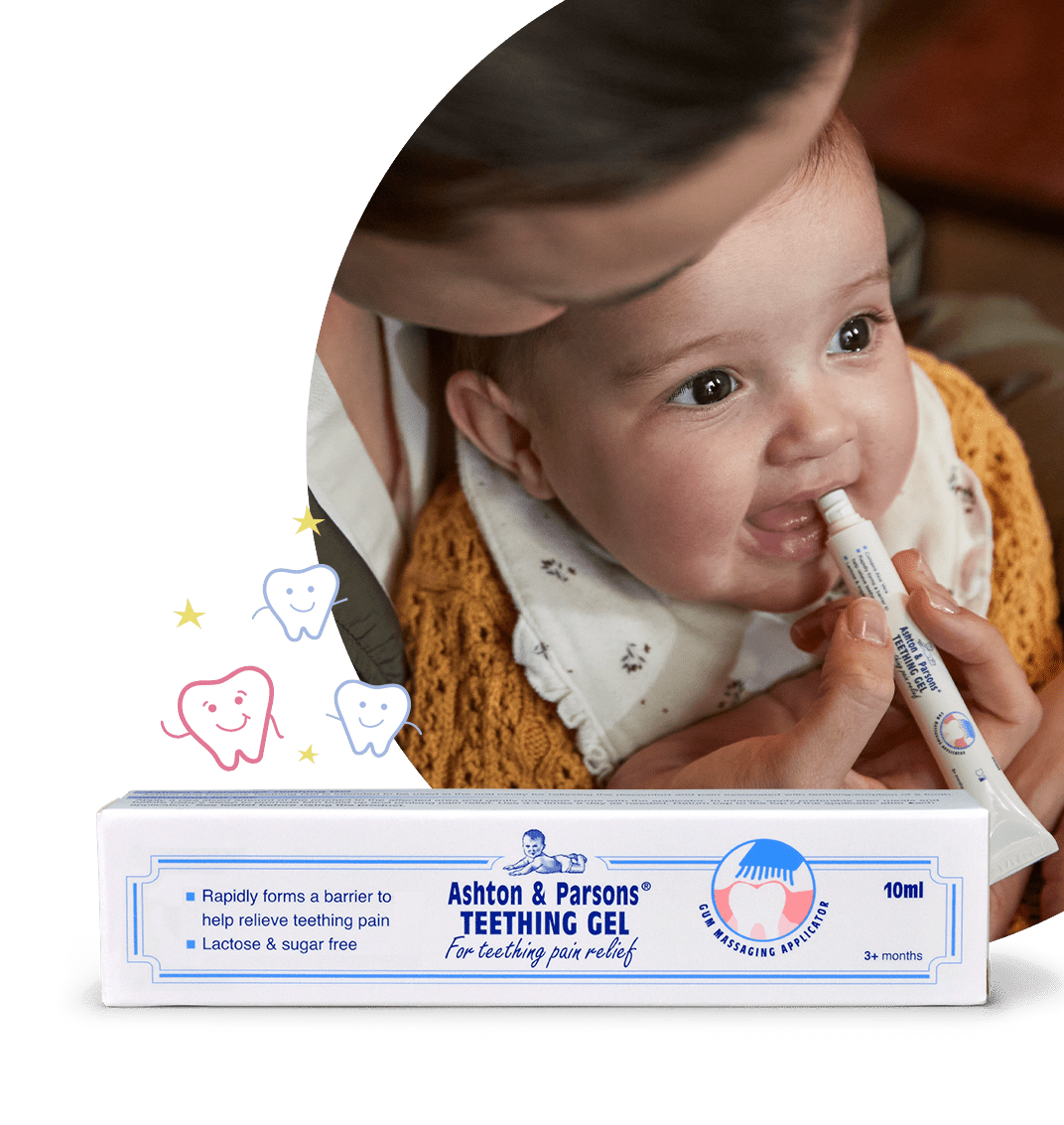Tracey Stone: What are some common teething remedies?
Tracey Stone is a Health Visitor, and able to provide expert guidance on all things teething. Currently a registered practising Health Visitor in the community working with children and their families, Tracey also supports families in the online community with issues related to health and wellbeing. She is a qualified Paediatric Nurse with over 20 years’ experience and a Nurse Prescriber. She has also helped establish a respite service for Children with Special Needs.

It’s reassuring to know teething is a natural part of your little one’s development. It is not an illness. The symptoms you may have to manage should generally be mild, and can be done by you. For babies who struggle with their teeth, and for their parents who have to help, thankfully there are remedies available.
Teething babies love to chew! The pressure this chewing action offers their gums gives relief. Instinctively they will seek anything to put into their mouths. You can make this as safe as possible by offering them the most suitable things. A clean fridge cooled (not frozen) wet flannel or teething rings are common choices to make. Either of these items should be freshly washed prior to each use. Not sharp, broken or torn preventing possible choking or harm to your little one’s mouth. If you choose a teething ring consider a solid one, not filled with any fluid, which could be burst by your babies strong bite. Both these items also offer a good distraction from their discomfort too as some are designed to be very appealing to babies of the teething age. A simple rub of their gums with your clean finger can also offer the same relief but will be more demanding of your precious time.
We all expect babies to dribble and drool when teething, making them prone to rashes on areas that get most wet. Applying a surface barrier cream regularly to these areas around the mouth and neck will help prevent a rash. Another area prone to rashes is the nappy area, which could become worse during teething – so the same advice applies there to the use of a good barrier cream. Offering cold drinks when teething also helps your babies gums, and it’s especially useful if your baby is dribbling lots to keep them hydrated.
If your little one is 6 months and has started weaning, you can also consider certain foods to help relieve the pain of teething. Single vegetables or fruit are great (and tasty!) places to start. Try blending, mashing or soft-cooking sticks of carrots, apples, pears, parsnips, broccoli, potato, yam or sweet potato. Or you could try adding some baby rice to your baby’s usual milk. And of course, make sure any cooked food has cooled right down before you offer it to your baby.
Speaking of cooling food, fridge chilled fruit and vegetables are also a great way to help reduce the discomfort of teething, as the cooling touch can help to reduce pain. Chilled bananas, cucumber, celery, peeled carrots, unsweetened biscuits and nice crusty bread to bite on are all healthy options to give your baby. This also ticks a box for the ‘Start4life’ initiative recommended by the NHS, introducing a healthy diet to your baby from the start. It’s important to remember as with any other time your baby is eating to stay with your child ensuring that they do not choke.
Amber necklaces are still used by many parents, but any benefit that is believed to come from these are outweighed by the risks. Potential strangulation or choking from a bead if the necklace broke is a shuddering thought, and one of every parent’s worst fear. These are therefore not recommended.
Your local Supermarket or Pharmacy is worth considering if you need more help. If your baby is over 3 months old the correct dose of sugar-free Paracetamol or Ibuprofen are an option for you, as are other over the counter remedies. It is important if do this that you take time to read the patient information leaflet that’s always included with the product, and follow its guidelines. Bear in mind that some products or ingredients may not be suitable for children. If in doubt of what to choose, most Pharmacies have access to a qualified Pharmacist who’ll be able to help with your selection.
Finally, one of the best remedies that is completely free and benefits everyone in the family is cuddles, snuggles and plain simple love. Teething can be stressful for everyone so be kind to one and all is an important remedy that should be put in all solutions. If at any point, you feel worried about managing your little one’s symptoms, please remember your GP, HV or NHS Direct is there to talk about your concerns.
General advice only, Tracey does not endorse the brand.





